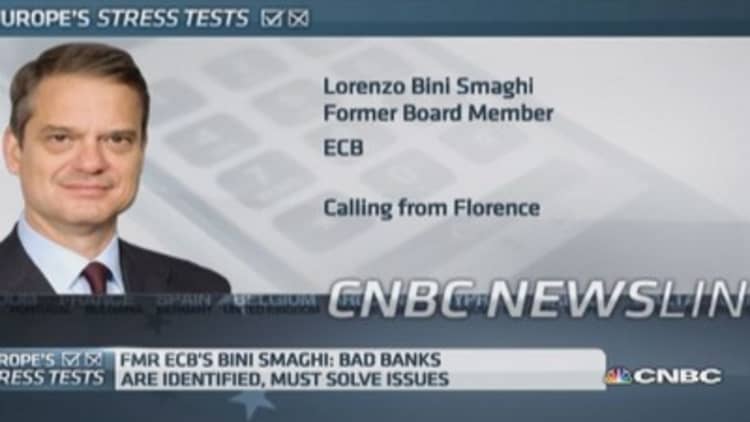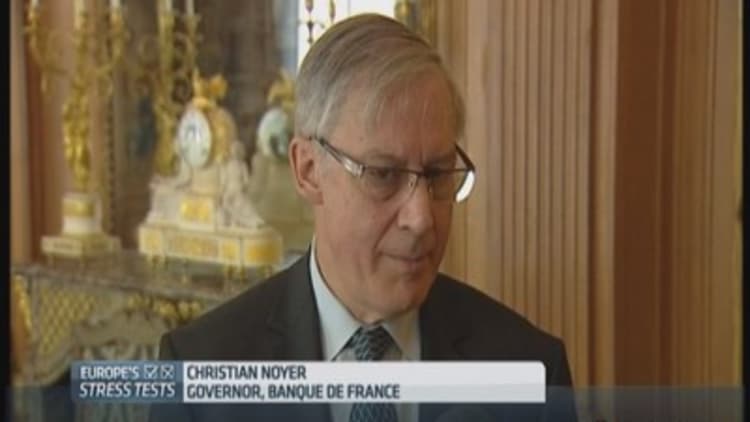
The European Banking Authority's (EBA) bank stress tests have been hailed by most as a resounding success that will reinstill confidence in the euro zone banking sector.
Central bankers and brokerages alike have declared the test as a "big step forward" that will prove positive for the share price of European banks and serve as a catalyst of change for the broader sector.

Governor of the French central bank, Christian Noyer told CNBC the quality of the exercise was "excellent" and that he is confident the result will convince markets and the general public about the quality of the banking sector in the euro zone.
Read MoreItaly's stress test fail: Attack of the 'drones'
As well as stress tests, which look at how a bank would cope in the case of a market shock or if property prices were to tumble in price, the EBA carried out the Asset Quality Review (AQR).
The AQR was an audit of banks' balance sheets and the value of assets on a bank's books.
Chief economist at Saxo Bank, Steen Jakobsen said the AQR has created a better standard throughout Europe as it was the first time regulators went through banks' books.
Read MoreGerman business confidence drops for 6th month
"Overall you can't just thow away one year's work of doing the AQR," he told CNBC – but the stress tests were "about as stressful as a walk in the park on a Sunday."
"I think the way it was done – with risk-rated assets to balance sheets used as a measure, is a very nice and flexible way of looking at your asset size. In the U.S. you have to have a total capital to total leverage which will have shown that banks in Europe and still thinly capitalized," he said.
Former member of the ECB's Executive Board and visiting scholar at Harvard Lorenzo Bini Smaghi said the European Central Bank had "no incentive to be soft" as any problem arising after the tests would be blamed on the ECB.
"Frankly these criticisms I think are not justified – it would not be in the interest of the ECB whatsoever to be light," he told CNBC.
The review was based on the banks' financial health at the end of 2013. Of the 25 banks that failed the ECB's test, 12 of them have already covered their capital shortfall.
Read MoreECB tests fail 25 banks with $32B shortfall
The remaining 13 banks with gaps have just two weeks to submit a plan to bolster their capital to the ECB.
DeVere Group's international investment strategist, Tom Elliott said while shining a light on the balance sheets of European banks was desirable, the tests are unlikely to be a "constructive tool" in repairing the region's banking sector
"The ECB should have announced the creation of a bad bank. A bad bank needs to be created to relieve euro zone banks of their bad assets, resembling a euro zone replica of NMA in Ireland," he said.
Follow us on Twitter: @CNBCWorld


